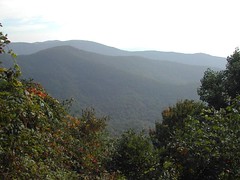Research links roundup, and some enlightening commentary
Back on the politics commentary, a couple things I found interesting in the last couple days:
In The American Prospect, Seven Ways Hillary Clinton Changed Our Politics.
In The New Statesman, Editor Andrew Stephen writes about Hating Hillary:
And, from Rick Perlstein, author of Nixonland (so on my reading list), in the blog of the Campaign for America's Future, The Meaning of Box 722. In 1966 an open housing campaign in Chicago drew angry residents upset about the possibility of desegregated neighborhoods, and they expressed their anger in letters written to then Sen. Paul Douglas. Perlstein believes it was this angry backlash that destroyed Johnson's Great Society and brought Nixon's political career back from the dead. The hatred -- of which some certainly remains -- is frightening but the story ends with the hopeful thought that our 'forty year war' (see previous posting) is really over:
On another note, here's a useful analysis of how yet another false rumor hits the email circuit and gets traction: E-mail on military deaths is shaky on facts, Army Times story debunking the latest.
Not to mention a nice history of where the Internet came from, in How the Web Was Won in Vanity Fair.
The Research Links:
Reference:
Keeping tabs on the global food crisis, good links from Shirl Kennedy at Resourceshelf.
Topo Explorer is a new topographic mapping tool from National Geographic, in beta.
Fast Facts on healthcare from Kaiser Family Foundation.
A new database for shipping/trade information: Techcrunch profiles a new subscription service called Importgenius.com that could be really useful for research and business.
Public Records:
Secretaries of State links from Coordinated Legal. One of many such guides but I find that old ones I've used have disappeared, so a new reliable one would be welcome. And more:
Internet Legal Resources for Legal Professionals at Coordinated Legal.
10 Essential Web Sites for Litigators from Genie Tyburski at Virtual Chase. No Lexis or Westlaw here, just free resources that lawyers (and news researchers) can actually use.
Government:
USA.gov tutorials, give help with finding government information online, or getting it delivered to you.
Tools:
Top 10 journalistic uses for Twitter and a Twitter search, from From the Frontline.
In The American Prospect, Seven Ways Hillary Clinton Changed Our Politics.
In The New Statesman, Editor Andrew Stephen writes about Hating Hillary:
Gloating, unshackled sexism of the ugliest kind has been shamelessly peddled by the US media, which - sooner rather than later, I fear - will have to account for their sins.
And, from Rick Perlstein, author of Nixonland (so on my reading list), in the blog of the Campaign for America's Future, The Meaning of Box 722. In 1966 an open housing campaign in Chicago drew angry residents upset about the possibility of desegregated neighborhoods, and they expressed their anger in letters written to then Sen. Paul Douglas. Perlstein believes it was this angry backlash that destroyed Johnson's Great Society and brought Nixon's political career back from the dead. The hatred -- of which some certainly remains -- is frightening but the story ends with the hopeful thought that our 'forty year war' (see previous posting) is really over:
Now a black man from the city King visited in 1966 and called more hateful than Mississippi is running for president, fighting for all those things that made the mid-century American middle class the glory of world civilization, but which that middle class squandered out of the small-mindedness of backlash.
On another note, here's a useful analysis of how yet another false rumor hits the email circuit and gets traction: E-mail on military deaths is shaky on facts, Army Times story debunking the latest.
Not to mention a nice history of where the Internet came from, in How the Web Was Won in Vanity Fair.
The Research Links:
Reference:
Public Records:
Government:
Tools:





0 Comments:
Post a Comment
<< Home